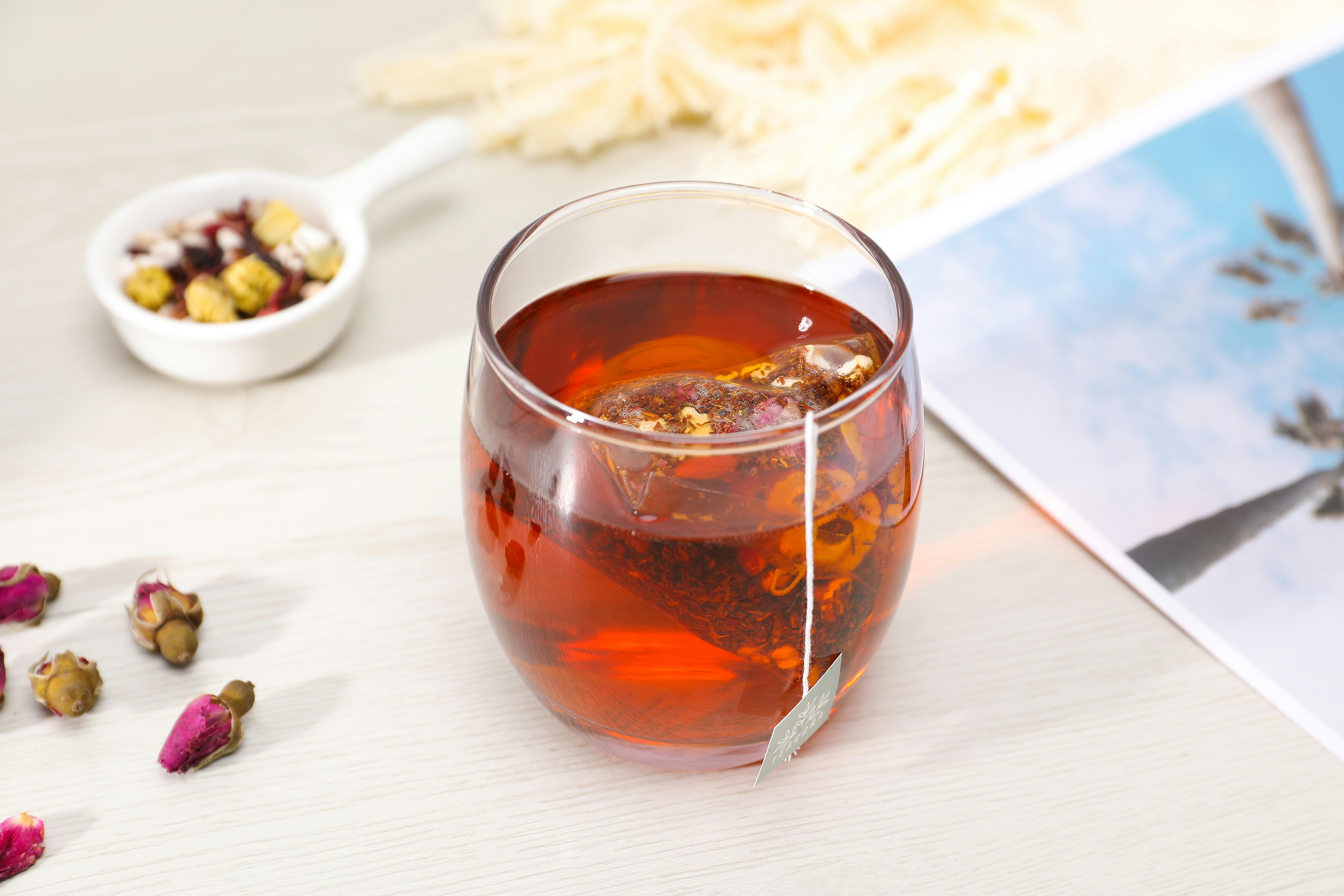Defining Herbal Tea
Herbal tea, often referred to as ’tisane,’ is a unique beverage distinguished from traditional teas by its composition and preparation method. Unlike conventional teas that stem from the leaves of the Camellia sinensis plant—such as green, black, oolong, and white teas—herbal teas are crafted from a diverse array of plants. These can include herbs, flowers, fruits, and spices, allowing for a wide variety of flavors and aromas. This fundamental difference is central to understanding what constitutes herbal tea.
Critical to the classification of herbal tea is the absence of actual tea leaves. As these infusions are derived from botanical sources other than Camellia sinensis, they are typically caffeine-free, making them a popular choice for individuals seeking to reduce their caffeine intake. The ingredients used in herbal teas can range from dried fruits like hibiscus and apple to aromatic herbs such as chamomile and peppermint. This wide-ranging ingredient profile not only affects various health benefits associated with each component but also the taste.
The taste profiles of herbal teas are also distinct and varied. Unlike the more subdued flavor palettes of traditional teas that may lean towards grassy, astringent, or floral notes, herbal teas offer an extensive spectrum of flavors ranging from fruity and spicy to earthy and herbal. This diversity is attributed to the myriad ingredients used, enabling herbal tea to cater to a wide variety of taste preferences. For example, a chamomile infusion provides a gentle, floral flavor, while peppermint offers a sharp, refreshing taste. Such versatility makes herbal teas popular among those seeking to explore new tastes and aromas.
The preparation of herbal tea typically involves steeping the chosen botanicals in hot water, allowing their flavors and essential properties to infuse into the liquid. The result is a nourishing beverage that can be enjoyed warm or chilled. Herbal teas can be tailored to suit different palates and desired effects, such as relaxation, digestion, or immune support, based on the selection of herbs and plants used. Overall, herbal tea presents a distinct category of beverages that invites exploration and appreciation for its rich diversity in flavors and health-promoting ingredients.
Common Ingredients in Herbal Teas
Herbal teas, feature a diverse array of ingredients renowned for their unique flavors and potential health benefits. Among the most popular components are chamomile, peppermint, hibiscus, and rooibos, each contributing to the rich tapestry of herbal infusions.
Chamomile, originating from the flowers of the Matricaria chamomilla plant, is famed for its soothing properties. This herb typically imparts a gentle, floral flavor, making it a popular choice for relaxation and sleep enhancement. The calming effects attributed to chamomile are complemented by its potential ability to relieve digestive issues, making it a staple in many herbal tea blends.
Peppermint, sourced from the Mentha piperita plant, is another frequently used ingredient. This invigorating herb delivers a refreshing taste with a mentholated undertone. Known for aiding digestion, peppermint tea serves as a natural remedy for gastrointestinal discomfort, thereby enhancing its appeal among health-conscious consumers. Additionally, its aroma can provide a sense of alertness, making peppermint a versatile option for various occasions.
Hibiscus, derived from the dried calyxes of the hibiscus sabdariffa flower, is celebrated for its vibrant red color and tart flavor profile. This ingredient is rich in antioxidants and has been linked to potential benefits such as lowering blood pressure and promoting heart health. The striking appearance and refreshing taste of hibiscus tea make it a favorite in both hot and iced preparations.
Lastly, rooibos, originating from the Aspalathus linearis plant in South Africa, offers a naturally sweet and earthy flavor. Naturally caffeine-free, rooibos is often chosen for evening enjoyment. It is rich in antioxidants and may help stimulate the immune system, alongside its reputation for supporting skin health.
The selection of ingredients like chamomile, peppermint, hibiscus, and rooibos showcases the diversity within herbal teas, highlighting their unique characteristics and health-promoting properties. Each herbal infusion presents a plethora of options for both taste and wellness, enriching the experience of tea drinkers worldwide.
The Health Benefits of Herbal Teas
As mentioned above, one of the primary advantages of herbal teas is their ability to aid digestion. Herbs such as peppermint and ginger are known for their digestive properties, helping to alleviate symptoms such as bloating, gas, and nausea. Similarly, chamomile tea is often recommended to soothe an upset stomach and promote overall digestive health.
In addition to aiding digestion, many herbal teas promote relaxation and improve sleep quality. Herbal infusions like lavender and valerian root are traditionally used to reduce anxiety and promote a sense of calm. The calming effects of these teas can assist those struggling with insomnia or heightened stress levels. Scientific studies have indicated that the compounds in these herbs can positively affect the central nervous system, contributing to their effectiveness as natural relaxants.
Furthermore, herbal teas can enhance immunity. For instance, echinacea and elderberry teas have been shown to support the immune system, particularly during cold and flu season. These herbs are rich in antioxidants and can help the body fend off illnesses by boosting immune responses. Research has suggested that regular consumption of such herbal infusions may lead to a reduced incidence of infections.
While the therapeutic benefits of herbal teas are substantial, it is important to consider potential precautions. Some herbs may interact with medications or may not be suitable for certain individuals, such as pregnant women. Therefore, it is advisable to consult with a healthcare professional before incorporating new herbal teas into one’s wellness routine.

